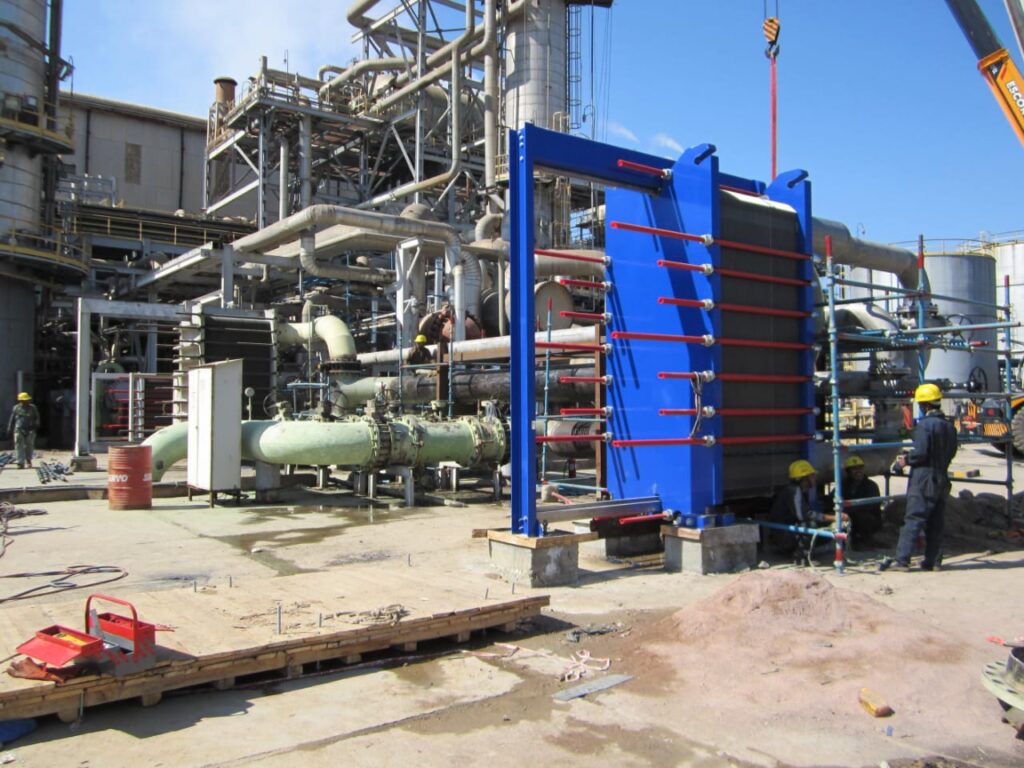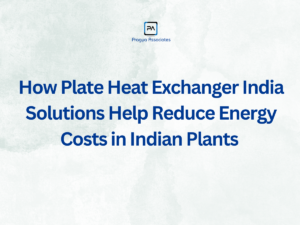In today’s world, achieving sustainability goals has become essential rather than an option. Companies and organizations in all sectors are looking for ways to improve their operational efficiency and lessen their environmental impact. A commonly overlooked technology that might be vital in achieving these goals is the effective heat exchanger.
Heat exchangers are workhorses in many industrial processes. They transfer thermal energy between different fluids. Although they may seem like simple machines, efficient heat exchangers can help you in your sustainability efforts in several ways.
Here are five key benefits:
1. Reduced Energy Consumption:
One of the important reasons for energy waste is inefficient heat exchangers. When they don’t work properly, they allow too much heat to escape into the surrounding environment. However, using a modern high-efficiency heat exchanger, you can achieve better heat transfer capabilities. This implies that less energy will be required to achieve the intended level of heating or cooling. Lower energy use leads directly to a lesser carbon footprint and environmental effects. In industries like HVAC, power generation, and manufacturing, this small improvement in heat exchanger efficiency can lead to substantial energy savings.

2. Waste Heat Recovery:
Many industries produce waste heat as a byproduct. Usually, this heat is just released into the environment, which results in a large waste of energy that can be used. Also, it impacts the environment badly. However, with the help of heat exchangers, this waste heat can be effectively used. They can transfer this heat to a different fluid with several uses. For example, waste heat from an engine cooling system could be used to preheat incoming air, reducing the energy needed for combustion. Companies can benefit in two ways by collecting and using waste heat. First, they’ll become more energy-efficient, and second, they’ll be able to develop new methods to minimize their dependence on fossil fuels.
3. Optimized Use of Water Resources:
Saving water is another important factor of sustainability. Some heat exchanger types—such as evaporative coolers—can significantly reduce water usage in comparison to conventional cooling techniques. These heat exchangers use the evaporative power of water to remove heat from a fluid stream. Their efficient designs minimize water usage by optimizing flow rates and reducing evaporation losses. In water-scarce regions, this technology can be a game-changer as it can help businesses operate in an efficient way while minimizing their impact on water resources.
4. Improved System Performance and Lifespan:
Efficient heat exchangers save energy while also improving system performance and extending its lifespan. They transfer heat effectively and reduce the load on other components in the system. This results in lower maintenance costs, less downtime, and a more reliable operation. Furthermore, efficient heat exchangers are often constructed with high-quality, corrosion-resistant materials. That is why they have a longer lifespan and reduce the need for frequent replacements.
5. Sustainable Material Selection:
Nowadays, leading heat exchanger manufacturers are paying more attention to the sustainability of the materials used in heat exchangers. They’re doing this in several ways, including using recycled materials to build heat exchangers and offering products that last longer with extended warranties. Many are also using refrigerants that are better for the environment.
These changes help reduce harm to the environment in two main ways. First, they lower the environmental impact when making and disposing of heat exchangers. Second, they decrease the contribution to global warming from the refrigerants used. The new refrigerants have a lower global warming potential compared to traditional options. By making these choices, manufacturers are taking important steps to make heat exchangers more sustainable overall.
Selecting the Appropriate Heat Exchanger for Your Purpose:
With so many benefits to consider, selecting the right heat exchanger for your specific application is crucial. The following are some crucial factors to think about:
- The type of fluids involved: Different heat exchangers are designed for specific fluid combinations (e.g., water-to-air, oil-to-water).
- Desired heat transfer rate: The size and design of the heat exchanger will impact its ability to transfer heat efficiently.
- Requirements for pressure and temperature: Check that the heat exchanger is capable of withstanding the system’s operational pressures and temperatures.
- Available space and budget: Heat exchangers come in various sizes and with varying price points.
Efficient heat exchangers can play a crucial role in helping organizations and companies achieve their sustainability goals. These versatile devices offer significant benefits by reducing energy consumption, recovering waste heat, conserving water, and improving overall system efficiency. To maximize these advantages, it’s important for businesses to carefully consider their specific needs and partner with a reputable heat exchanger manufacturer like Pragya Associates.
By taking these steps, companies can select the most appropriate heat exchanger solution to support their sustainability efforts. This approach not only helps organizations make progress towards their environmental objectives but also contributes to creating a more eco-friendly future for their operations and the broader community.







